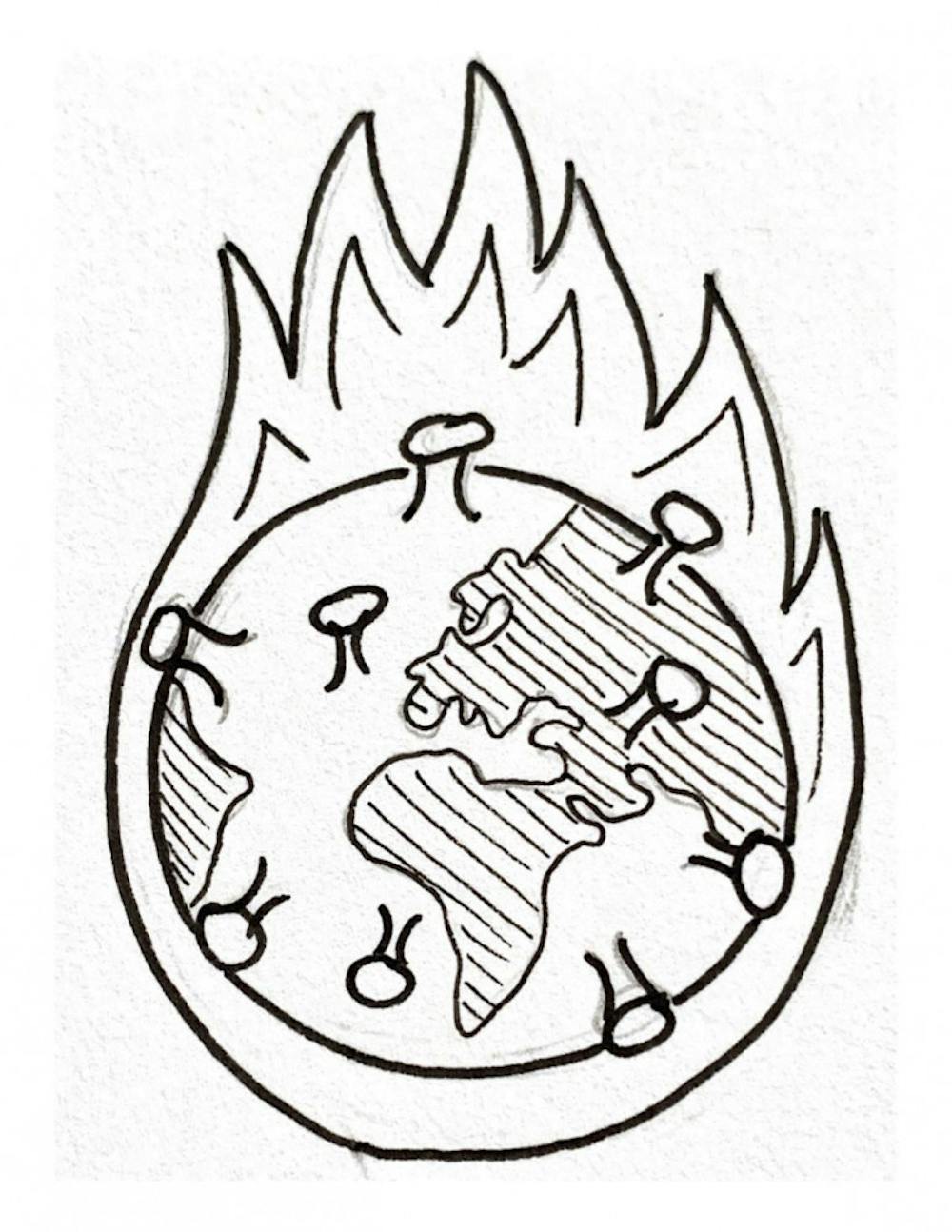Two weeks ago, Middlebury College joined thousands of other schools when it was forced to shut down on-campus operations due to the novel coronavirus. Suddenly, what seemed like an overseas crisis became our reality. Many of us were left without a safe home to return to as we packed up our lives indefinitely. Scrambling to say our goodbyes, we were gravely aware of our time lost at Middlebury and the difficult months ahead. Taking shelter across the country, we have helplessly watched this crisis disrupt our world while taking thousands of lives.
As we are writing this, the United States has the highest prevalence of Covid-19 in the world with 431,838 confirmed cases (likely a drastic underestimate due to a shortage of testing kits, healthcare disparities and asymptomatic carriers). We have seen mass layoffs disproportionately affecting low-wage workers, small businesses and at least 27.5 million uninsured Americans; nearly 40% of New Yorkers of New Yorkers are unable to pay rent and almost 10 million Americans have filed for unemployment insurance. Government officials across the country have scrambled to take action. Seattle has enacted a rent moratorium, New York state temporarily waived foreclosures and Congress has approved a two trillion dollar economic stimulus package.
While this unprecedented resource mobilization to fight the coronavirus is certainly warranted, it is shocking compared to our inaction tackling the climate crisis. The economic restructuring and dramatic lifestyle changes we have seen in the past weeks prove the kind of large-scale action needed to address climate change has been possible this whole time. We were in a global crisis even before this pandemic. In the past year we witnessed large parts of California, the Amazon and Australia burn, and floods devastated the central United States, Brazil and Ecuador. Atmospheric carbon dioxide concentrations reached 415 parts per million, far above scientifically accepted safe levels needed to maintain a livable planet. Globally, black, brown and low-income people are disproportionately impacted by toxic drinking water, industrial waste, and other forms of environmental degradation. And climate change promises a future of more pandemics, more fires, more floods and more frequent and devastating events of every kind. These crises will shut down our country (and the world) time and time again, just like Covid-19 has. Without a concerted effort, the fear, sadness and destabilization we are currently experiencing as a result of Covid-19 will define life for generations to come.
But we also cannot ignore that coronavirus is part of climate change; both are symptoms of the same capitalist system that values profit over lives. The U.S. government's response to the mounting economic crisis is to bail out airline companies and fossil fuel corporations instead of reaching out to those most vulnerable — especially undocumented and migrant workers whose needs and essential contributions are consistently overlooked. Whether it be our overwhelmed healthcare sector or the lack of supportive infrastructure for at-risk populations, this crisis has and continues to reveal the cruel inadequacies of our social and economic structures.
Right now, we have the opportunity to radically rebuild our country. And many are already trying: workers at Amazon and Instacart, for instance, are striking to demand just labor standards. General Electric employees are protesting to shift production to medical equipment. Tenants struggling to pay rent are threatening rent strikes. Politicians like Stacy Abrams are advocating for bailing out people who have been hit the hardest by the crisis, rather than large corporations. College students all around the world are building mutual aid networks to help classmates and community members facing sudden displacement. All around us, people are beginning to imagine and enact a world in which they want to live. And so as Covid-19 continues to take and change lives we have a choice: do we allow governments and corporations to profit off of the increased vulnerability of people and devastate our planet, or do we learn from this crisis and replace the broken systems that got us here? Please, choose consciously.
Sophie Chalfin-Jacobs ’22, Claire Contreras ’22.5, Divya Gudur ’21, Jaden Hill ’22, Hannah Laga Abram ’23, and Asa Skinder ’22.5 are all members of Middlebury Sunday Night Environmental Group.
We are in a global crisis, with or without Covid-19

Comments

![Copy of Editorial [Susanna] (3) (1) (2) (1).JPG](https://snworksceo.imgix.net/mbc/11c1e285-1b2c-4ee9-9d20-4a2f24335290.sized-1000x1000.JPG?w=1500&ar=16%3A9&fit=crop&crop=faces&facepad=3&auto=format)

